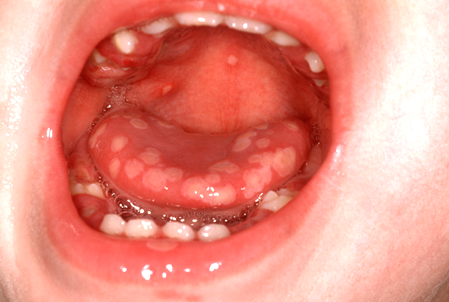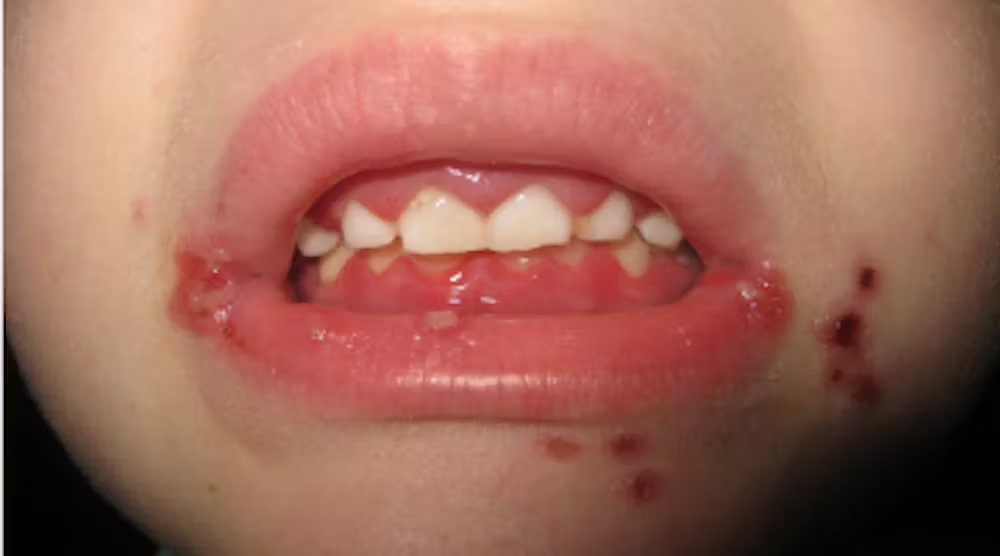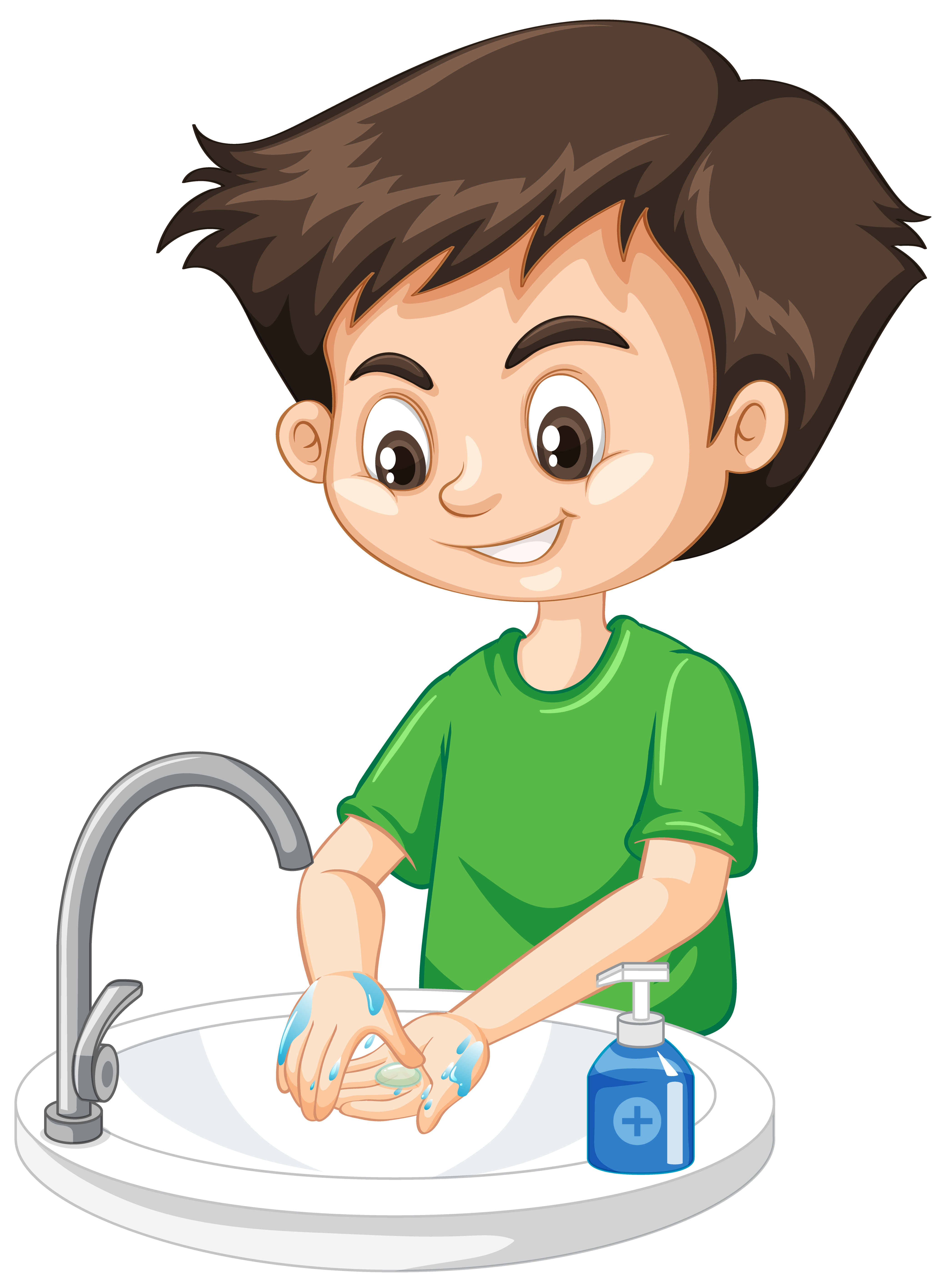What is herpes gingivostomatitis?
- An infection caused by herpes simplex virus.
- It causes sores in the mouth, on and around the lips, and less commonly on the chin and cheeks too.
- The sores usually heal in 7 days but can take longer.
- Once infected, the virus continues to live in the nerves in your child’s face, so your child can have repeat symptoms.
- When your child first gets this infection, they might have more generalized symptoms like fever and fatigue. This is called the primary infection.
- Subsequent episodes (if your child has the infection again) are usually limited to sores around the mouth and on the lips instead of inside the mouth.
- It is spread from person-to-person and most children are exposed between the ages of 6 months and 5 years old.
- It can take one week for symptoms to develop.

What are the symptoms of herpes gingivostomatitis?
- Symptoms of primary infection may include:
- Fever, fatigue, decrease in appetite and fluid intake.
- Ulcers inside the mouth and fluid-filled blisters on and around the lips and possibly on the chin and cheeks.
- They are usually painful but might also feel itchy or tingly.
- They can take a week or longer to heal completely.
- Your child might complain of sore throat, or you might see them drooling more than normal.
- Increase in irritability, headaches or bodyaches.
- Symptoms of subsequent episodes may include:
- Vesicles in the mouth, on and around the lips, and possibly the chin and cheeks.
- Pain leading to a decrease in appetite and fluid intake.

How do I prevent my child from getting herpes gingivostomatitis?
- Avoid sick contacts.
- Encourage your child to frequently wash their hands.
- Clean high touch surfaces regularly, including toys that are put into the mouth and play/exercise equipment.
- Avoid sharing food, drink or toothbrushes with other people.
- Repeat episodes can be triggered by many factors:
- Exposure to intense heat, cold or dryness.
- Dress your child appropriately for the weather, keep their skin hydrated and be sure to apply sunscreen.
- Times physical or emotional stress.
- Help your child with stress coping skills such as deep breathing, mindfulness and talking through their emotions.
- Injuries or breaks to the skin.
- Discourage your child from picking at their skin and clean any scrapes to prevent infection.
- Poorly balanced diet and dehydration.
- Encourage your child to choose nutritious foods and drink lots of water.
- Having another illness (like the flu or a cold)
- Keep your child up-to-date on their flu vaccine.
- Exposure to intense heat, cold or dryness.

What is the treatment for herpes gingivostomatitis?
- In some cases, an antiviral called acyclovir might be prescribed.
- Usually, the mainstay of treatment is helping your child stay comfortable and hydrated.
- You can apply cold compresses or ice packs to the area.
- You can give Tylenol or ibuprofen (if 6 months or older) for pain or discomfort.
- Encourage your child to stay hydrated.
- Avoid salty, spicy, or acidic foods if they irritate the sores.
- Soft foods may also help such as apple sauce, yogurt, noodles, soups and cheese.
Call your provider if:
- You think your child needs to be seen.
- Your child is not taking in enough fluids.
- Your child is having trouble breathing.
- Your child has had a fever for five days.
- Your child has sores near their eyes.
- Your child’s sores look like they have pus or pus is draining from them.
- Your child’s symptoms are getting worse.
This publication was adapted from information within American Academy of Pediatrics Patient Education Handouts, UpToDate Guidelines and Healthychildren.org, and https://www.rch.org.au/clinicalguide/guideline_index/HSV_Gingivostomatitis/
Reviewed by: TT D.O, AR D.O. | 12/2023


